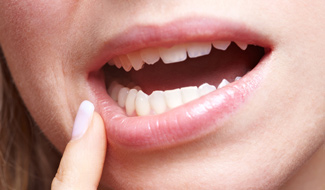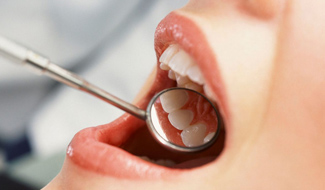Dental extraction
Dental extraction (exodontia) I.
A dental extraction is the removal of a tooth from the mouth. The most common reason for extraction is tooth damage due to breakage or decay. There are additional reasons for tooth extraction: paradontopathy (a disease of parodont), an impacted tooth (one that fails to erupt into the dental arch within the specific time), in preparation for orthodontic treatment (braces), etc. Simple extractions are performed usually under local anaesthetic. Surgical extractions involve the removal of teeth that cannot be easily accessed, either because they have broken under the gum line or because they have not erupted fully.
Dental extraction (exodontia) II.
There are times when a tooth cannot be saved and it has to be removed from the body. Tooth decay does more than affect your smile. The infection could then spread, causing a myriad of health complications.
Wisdom teeth commonly affect other teeth as they develop, becoming impacted or "coming in sideways." They are often extracted when this occurs.
Before the procedure, your dentist will give you a local anesthetic to numb the area where the tooth will be removed.
You will not feel any pain! We use special instruments to elevate and/or grasp the tooth. After it is removed, you may need stitches, so the wound will heal faster.
Some stitches dissolve over time, and some have to be removed after a few days. Your dentist will tell you whether your stitches need to be removed. Having the stitches out is painless.
The duration of a tooth extraction cannot be defined because each of them depends on many different factors.
It is very important to follow the post operative instructions prescribed by your oral surgeon.
What to Do Before and After a Tooth Extraction
When it comes to tooth extraction, there’s much you can do both before and after the surgery to lessen the pain and risk of infection.
Before tooth extraction
Before tooth extraction follow the following instructions to ensure that the treatment more efficient and the healing is faster. Some days prior to the extraction:
- lower your caffeine intake, alcohol consumption and quit smoking,
- brush your teeth thoroughly, use floss and mouth rinse.
Following the consultation with the dentist, a qualified dental hygienist will perform professional cleaning and polishing on your teeth before the extraction which helps:
- reduce the number of bacteria in the mouth,
- lower the risk of infections and inflammations,
- guarantee faster healing period.

After tooth extraction
After the tooth has been removed, a blot clot forms around the extraction site which covers the wound and allows the area to heal. It is a natural process which has a positive implact on the healing. Adhering to the following advices will be essential to allow for the appopriate functioning of the blood clot and the proper healing of the extraction site:
- Refrain from eating and drinking hot beverages until the anesthesia completely wears off.
- Take painkillers as directed by your dentist.
- Take antibiorics as directed by your dentist in order to prevent infection.
- Use ice packs to control swelling by placing them on facial areas near extraction.
- Dont rinse, spit forcibly, or drink from a straw for a couple of days following the extraction.
- You may brush your teeth gently with a soft toothbrush on the day of the surgery, but avoid the tooth extraction site when brushing and flossing your other teeth.
- Avoid coffee consumption and smoking for 24 hours after the extraction.
- We suggest avoiding dairy products and alcohol for a few days after the extraction.
- You should also avoid foods that have small seeds, such as sesame seeds or poppy seeds, as these small ingredients can get lodged in the tooth sockets.
- Limit strenuous activity for 48 hours after the extraction. This will reduce bleeding and help the blood clot to form.

If you have any questions after the extraction, do not hesitate to contact us at + 41 22 501 72 76
orinfo@implantcentre.ch
 Français
Français  Русский
Русский  English
English 



